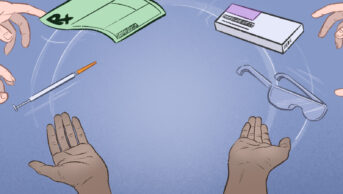
istockphoto.com
The registered profession of pharmacy technician is less than four years old in the UK, although technicians have played a recognised — if often ill-defined — role in the pharmacy team for decades. Given this lack of definition, it is unsurprising that the General Pharmaceutical Council wants to ensure there is “one register, one entry point, and one standard” for pharmacy technicians.
As a first step, the pharmacy regulator commissioned the University of Manchester’s Centre for Pharmacy Workforce Studies (CPWS) to find out exactly how pharmacy technicians are trained. The CPWS results, released in February 2015, have exposed a shocking knowledge gap in this cornerstone of both hospital and community pharmacy.
Nobody knows how many people are currently being trained as pharmacy technicians. Nor is there any information about whether technicians are being recruited directly in-post or dispensary staff are being promoted as part of their career progression.
There is also wide variation in the training experienced, with a distinct divide between community and hospital pharmacy settings. Future pharmacy technicians in hospitals are more likely to have protected study time as part of their contract, have their course fees funded by their employer (99% compared with only 84% of community trainees), and are more likely to receive a higher salary both during training and once qualified.
The range of training courses, providing both the knowledge and competence qualifications required to become a pharmacy technician, are also perceived by pharmacy technicians to differ in terms of quality between providers. Pharmacy technicians are concerned that the type of assessments vary, and feel their qualifications are not equivalent. Other technicians say there is a lack of structure and monitoring for work-based training, and little regulation of support from supervising pharmacists.
The General Pharmaceutical Council has said it wants to deliver a “generational change” to regulation of pharmacy technicians, observing it will be 30–40 years before a technician starting their career today will retire. As a next step, in plans to start a full review of pharmacy technician training standards, concluding in late 2015 or early 2016.
The CPWS report must be a wake-up call for the regulator. As pharmacist training has demonstrated, the numbers entering a profession are valuable data, and workforce planning demands greater situational awareness rather than waiting for names to be entered on a register. The regulator must provide greater clarity on the role of the pharmacy technician and the standards each should meet to ensure rightful recognition from other health professionals. And all pharmacy technicians must receive adequate support throughout their training.


